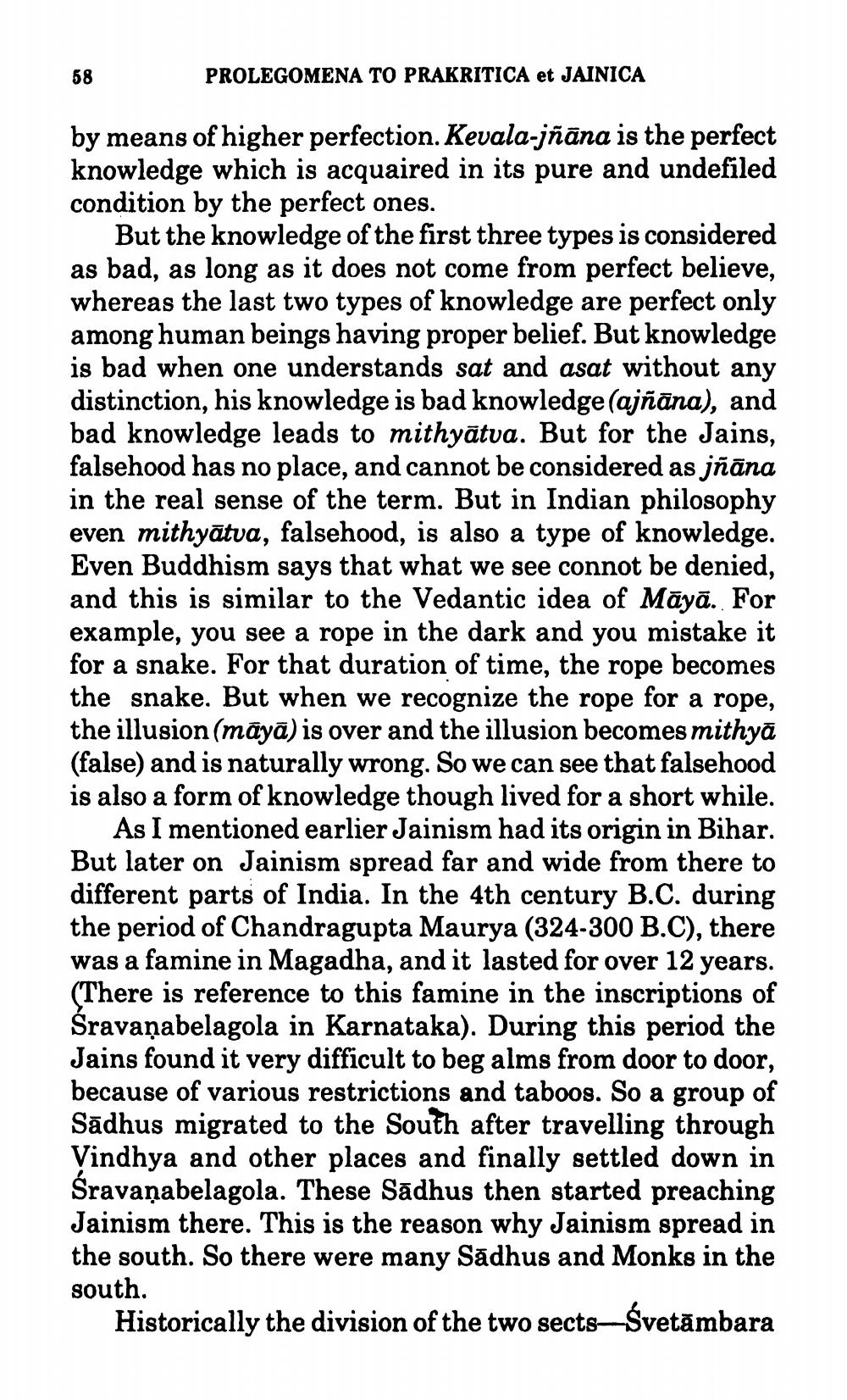________________
58
PROLEGOMENA TO PRAKRITICA et JAINICA
by means of higher perfection. Kevala-jñāna is the perfect knowledge which is acquaired in its pure and undefiled condition by the perfect ones.
But the knowledge of the first three types is considered as bad, as long as it does not come from perfect believe, whereas the last two types of knowledge are perfect only among human beings having proper belief. But knowledge is bad when one understands sat and asat without any distinction, his knowledge is bad knowledge (ajñāna), and bad knowledge leads to mithyatva. But for the Jains, falsehood has no place, and cannot be considered as jñāna in the real sense of the term. But in Indian philosophy even mithyatva, falsehood, is also a type of knowledge. Even Buddhism says that what we see connot be denied, and this is similar to the Vedantic idea of Māyā. For example, you see a rope in the dark and you mistake it for a snake. For that duration of time, the rope becomes the snake. But when we recognize the rope for a rope, the illusion (māyā) is over and the illusion becomes mithya (false) and is naturally wrong. So we can see that falsehood is also a form of knowledge though lived for a short while.
As I mentioned earlier Jainism had its origin in Bihar. But later on Jainism spread far and wide from there to different parts of India. In the 4th century B.C. during the period of Chandragupta Maurya (324-300 B.C), there was a famine in Magadha, and it lasted for over 12 years. (There is reference to this famine in the inscriptions of Śravanabelagola in Karnataka). During this period the Jains found it very difficult to beg alms from door to door, because of various restrictions and taboos. So a group of Sadhus migrated to the South after travelling through Vindhya and other places and finally settled down in Śravanabelagola. These Sadhus then started preaching Jainism there. This is the reason why Jainism spread in the south. So there were many Sadhus and Monks in the south.
Historically the division of the two sects-Śvetambara




